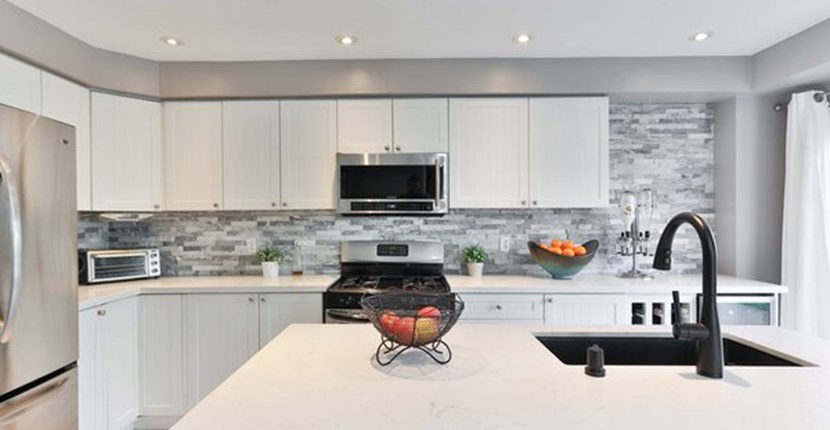Posted on 11 02 2022
Benefits of upgrading appliances and lighting

Energy efficiency may not be the first thing you consider when it comes to maintaining or improving your investment property. However, investing in energy-efficient upgrades will benefit you, as well as your tenants.
Tenants are becoming more aware of legal standards, such as those in the Healthy Homes Act, and want homes that will support them to live cheaply and comfortably.
Providing a well-insulated home with energy-efficient heating, lighting, and appliances will make it easier to let and may attract a higher rent, as well as increase the resale value. Here are some more reasons why you should consider upgrading your lighting and appliances.
Energy efficiency
New appliances use anywhere between 25 and 70% less power than their 10-15-year-old counterparts, depending on the appliance and its energy rating.
The energy rating makes it easy to compare the efficiency of appliances of the same type – the more stars, the more energy-efficient (dishwashers and washing machines also have a water rating).
And if you’re still lighting your home with halogen or incandescent bulbs, they could be responsible for a whopping 40 percent of the monthly power bill. LED bulbs cost a bit more to buy but they last up to 25 times longer than halogens and use up to 85% less electricity.
LED lights and appliances with a high energy rating are often more expensive, but the savings over time will easily outweigh the upfront cost.
When it comes to home heating, a heat pump is the most cost-effective appliance, with an energy efficiency rating of 300%. By contrast, direct electrical heating has an energy efficiency rating of 35-45%.
While saving energy can help you (and your tenants) personally, on a larger scale it saves millions annually, and using less energy can help decrease our dependence on foreign sources for energy.
Safety
If your gas cooktop was installed in or before 2017, it may not have flame failure protection. If the flame goes out, a flame safeguard device will automatically stop the flow of gas to the burner. This prevents the build-up of harmful gas in the room, which can result in injury or sickness and can even be deadly if it’s undetected for too long.
General wear and tear can also pose hazards. The power cords on older appliances may start to fray over time, leading to the risk of electric shock. If the seal on the microwave door is damaged or the door doesn’t close properly, it could lead to microwave radiation leakage which, at high levels, can cause a painful burn or eye damage.
One of the best reasons to upgrade your lighting to LEDs is that they last so long that you may never have to climb a ladder to change a blown lightbulb. Most injuries at home are caused by falls, and many happen on and around ladders.
Convenience
New appliances will mean less maintenance for you and user-friendly features for your tenants.
Older appliances may still work, but they’ll start developing small faults which impact how well they work or how easy they are to use. If the oven or electric cooktop takes ages to heat up, it may be coming to the end of its lifespan.
A fan-forced oven with a digital display is much more versatile than an old conventional oven and is better for temperature accuracy and energy efficiency. An oven with a pyrolytic cleaning function makes life easier and means your oven is more likely to stay clean.
Environmental impact
Energy-efficient appliances emit less carbon dioxide and other greenhouse gases, which will reduce your carbon footprint. A lower carbon lifestyle is better for our climate and the environment.
LED lights convert almost all their energy into light, produce very little heat, and can have insulation laid straight over top, meaning no gaps and a warmer house.
The average modern dishwasher on a full cycle uses about 15 liters of water, far less than washing those dishes in the sink. And a dishwasher with a 4-star energy rating produces 51% fewer emissions than a similar dishwasher with only 2 stars.
If you’re replacing appliances that are still functional, you can reduce your environmental impact by selling it or donating it to charity, so it doesn’t go straight to landfills.
If you do decide to replace kitchen appliances, install a heat pump, or upgrade your lighting, hire a trustworthy contractor who will be familiar with the options available and will make sure you get the best products.
With the Government's Warmer Kiwi Homes initiative, you may be eligible for a grant to cover 80% of the cost of a heat pump. Get in touch with our team of experts for more advice on making your property more eco-friendly.